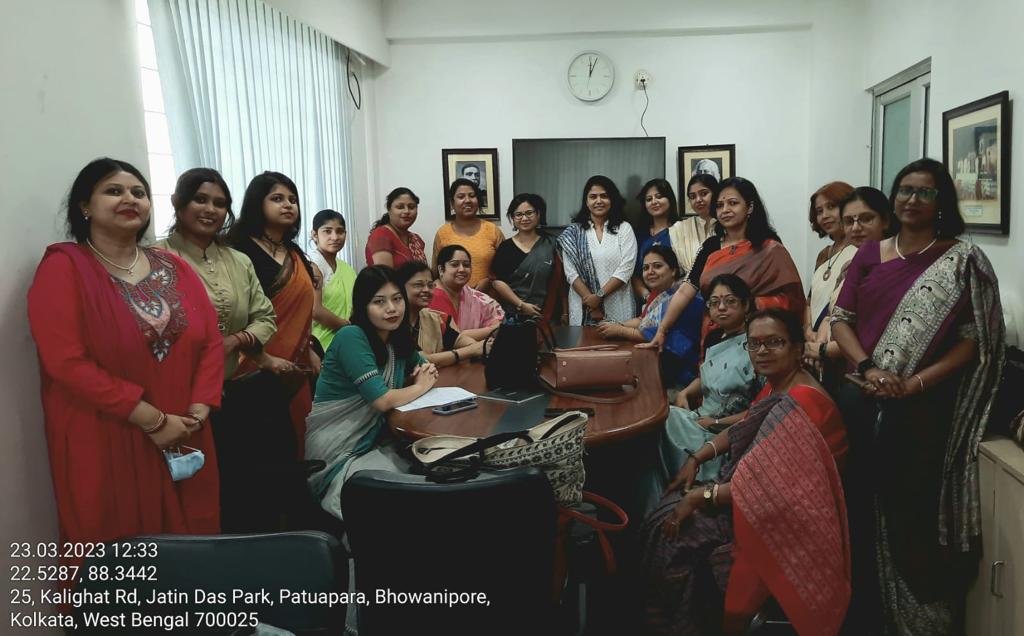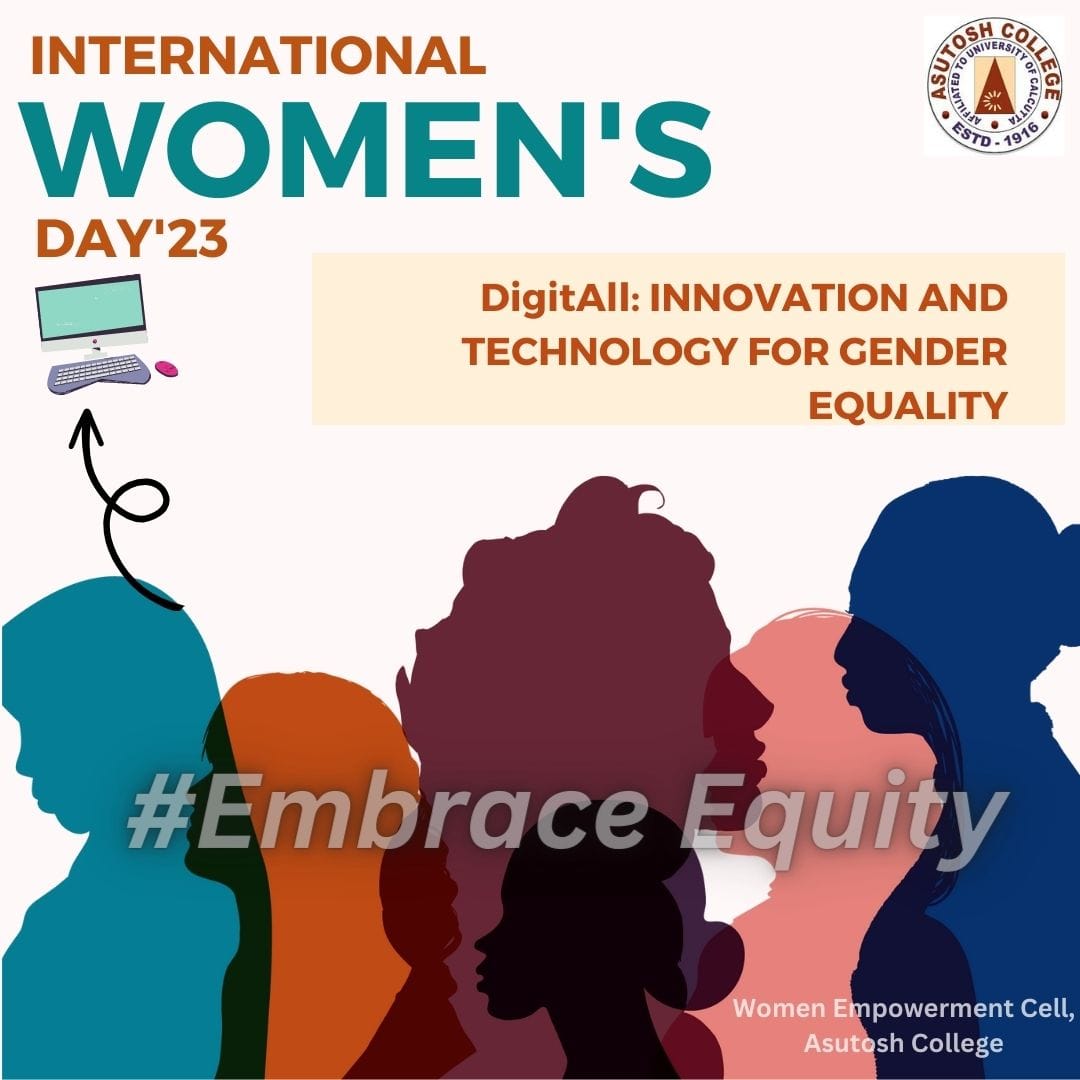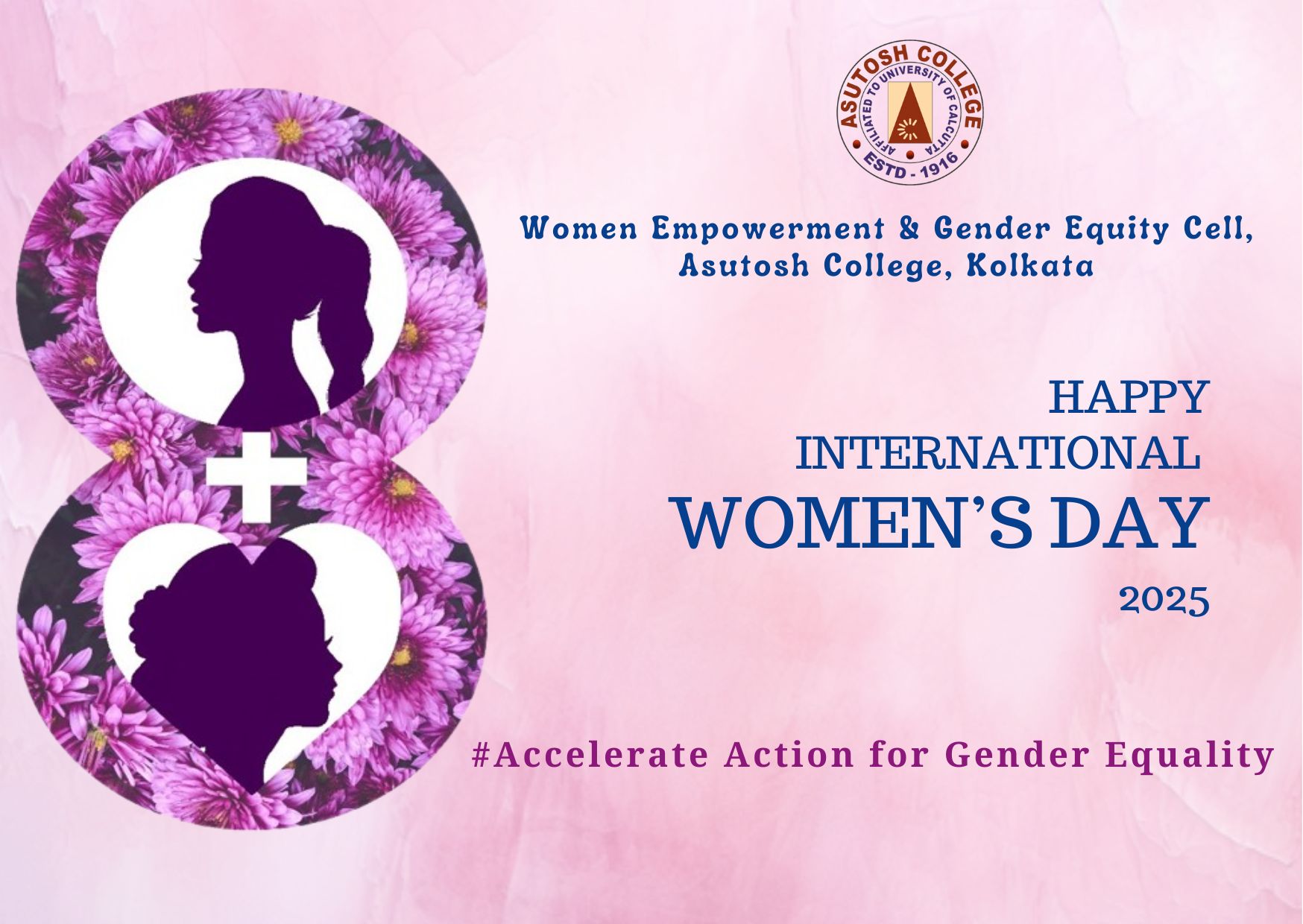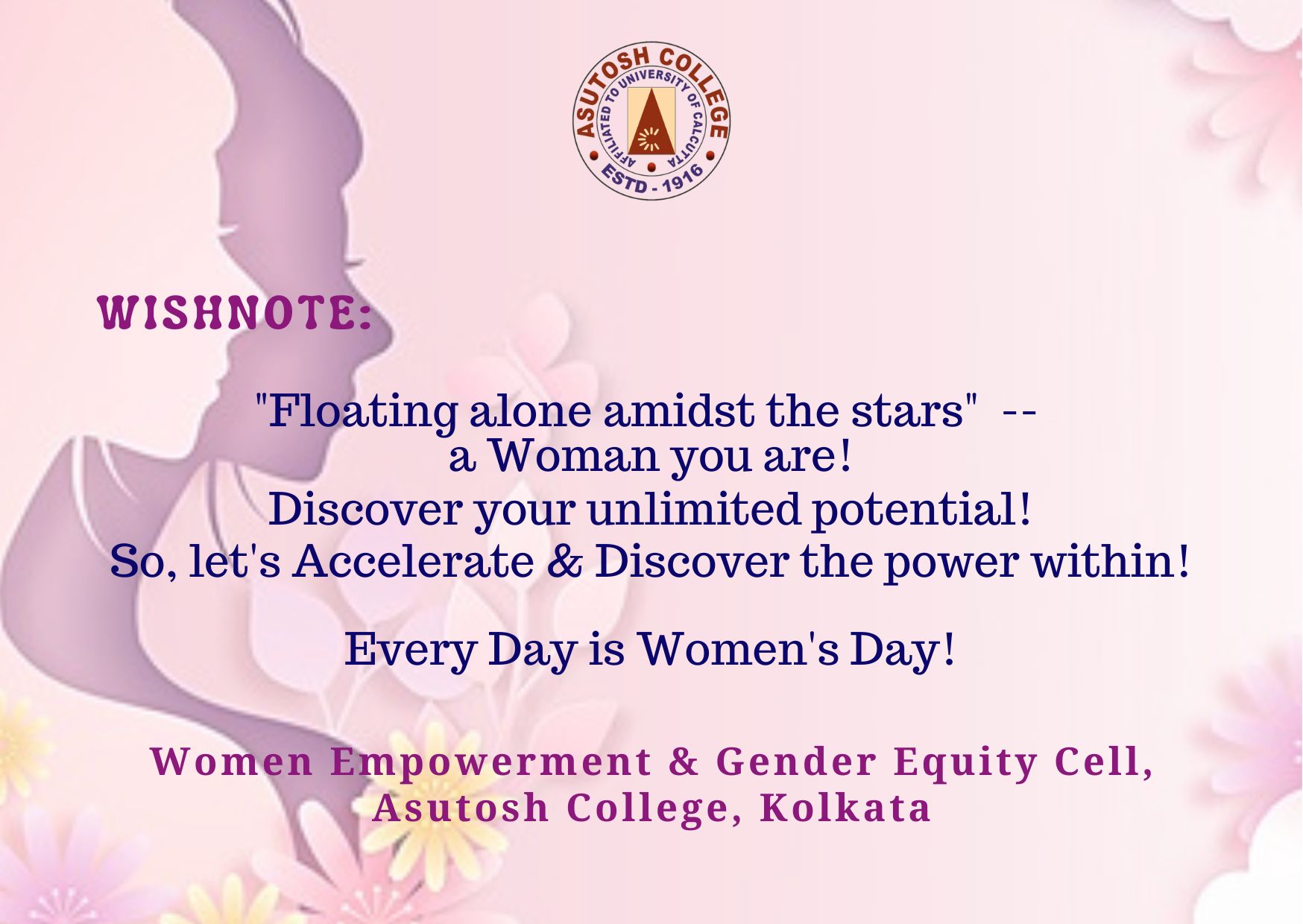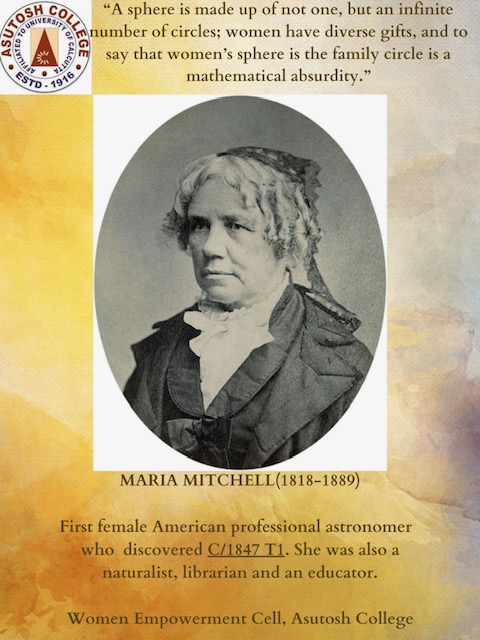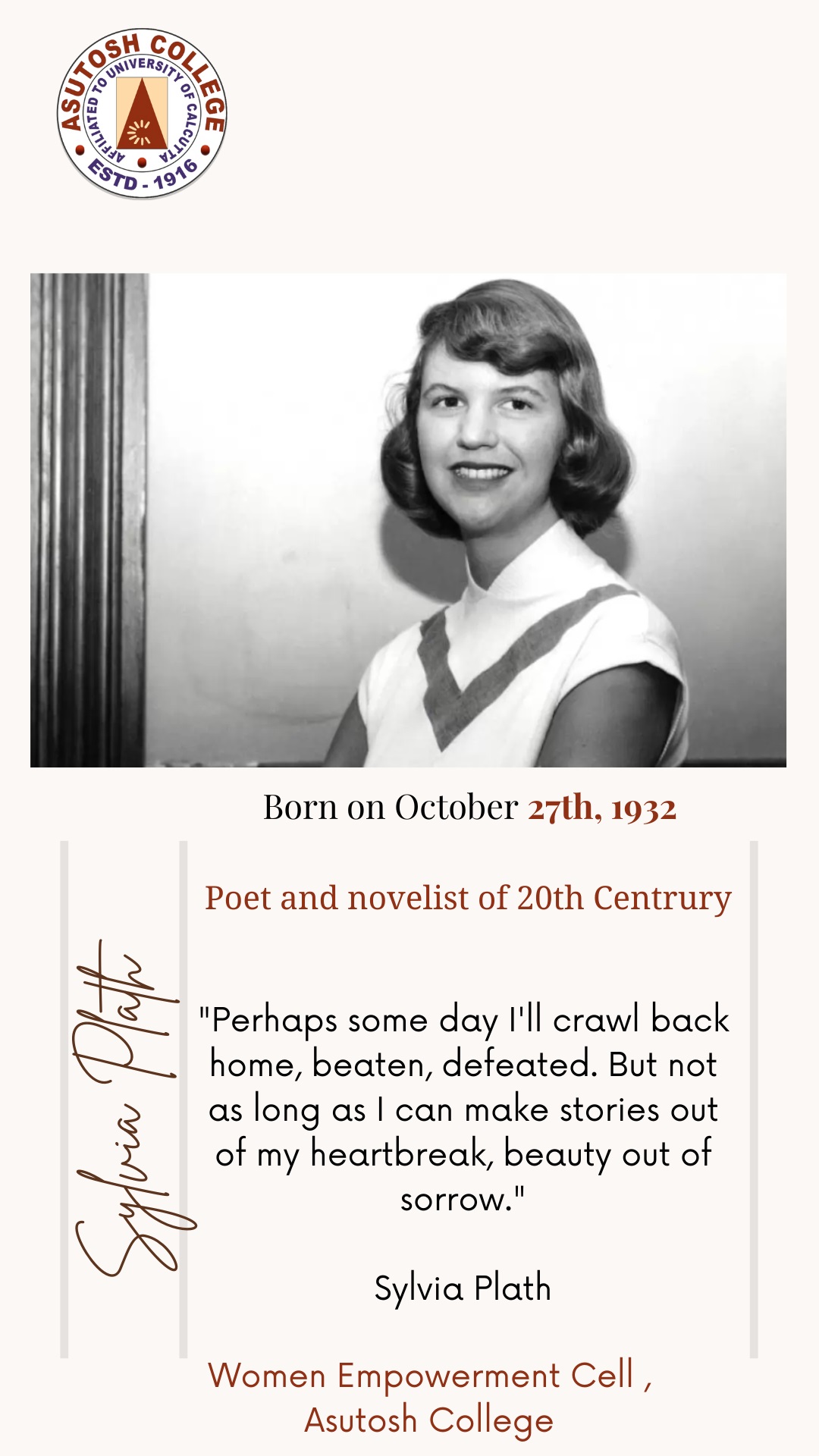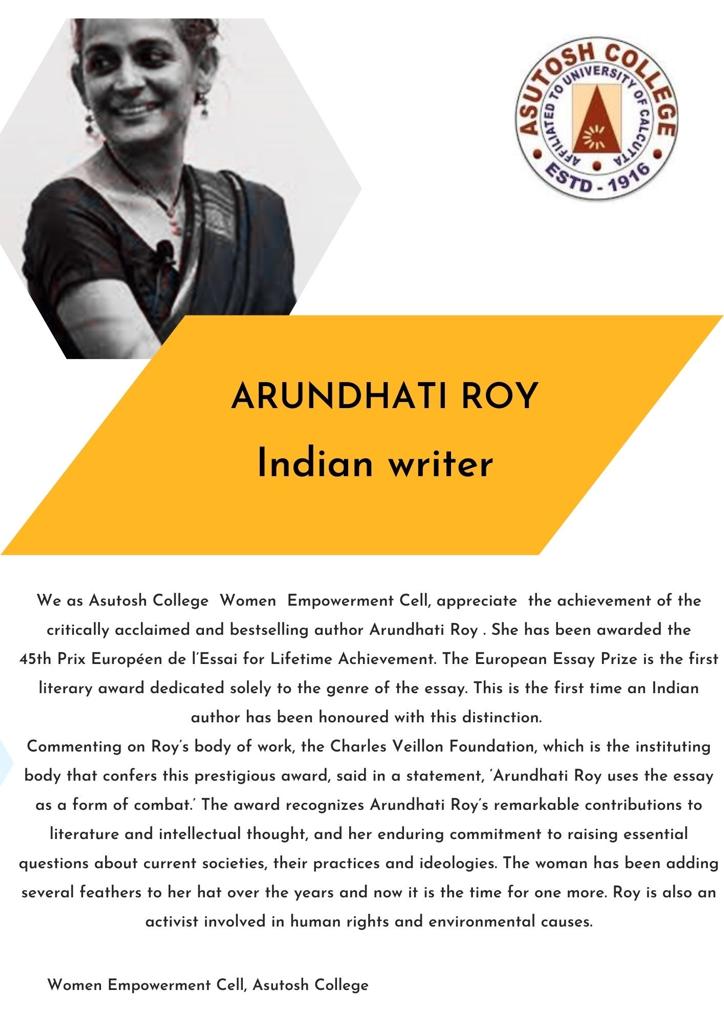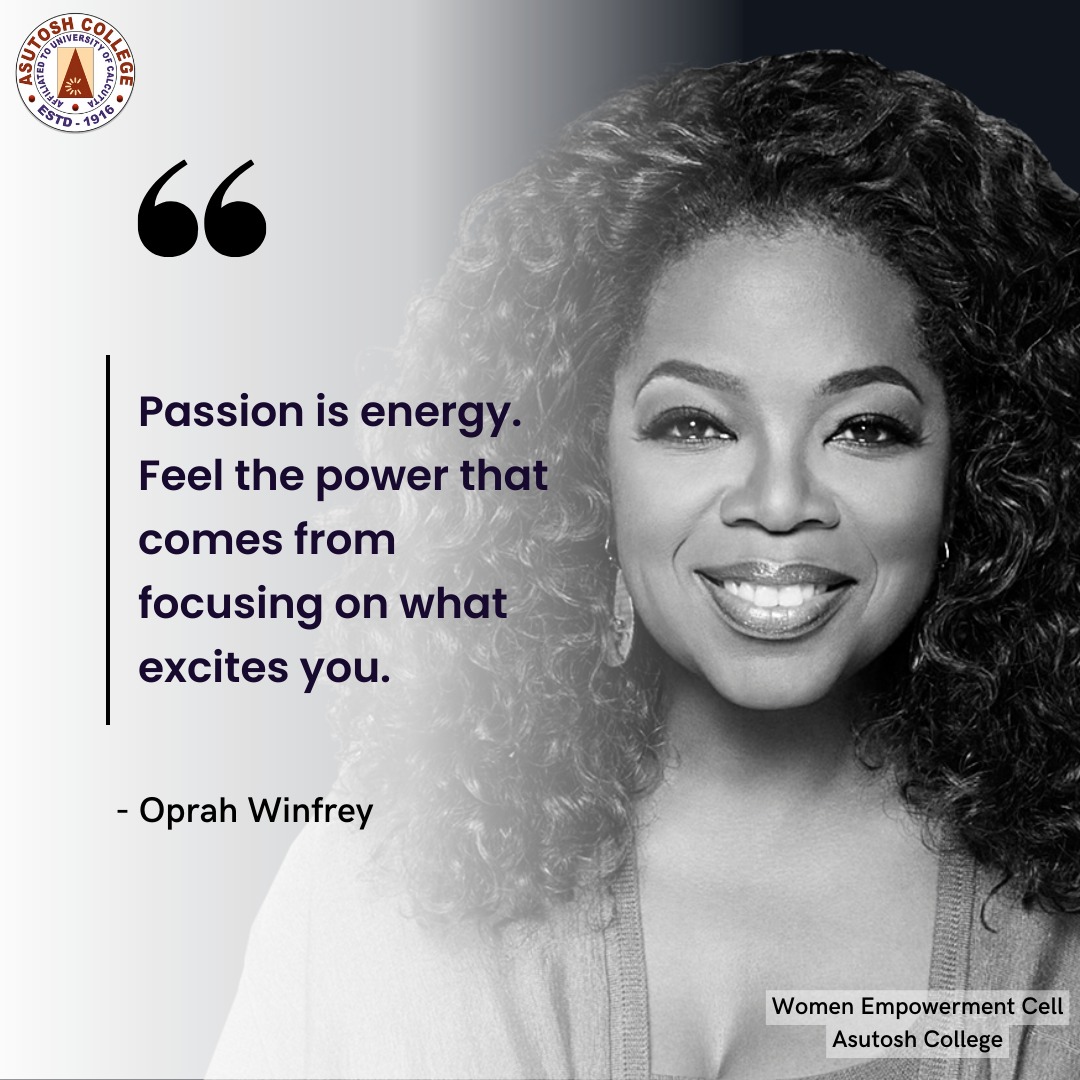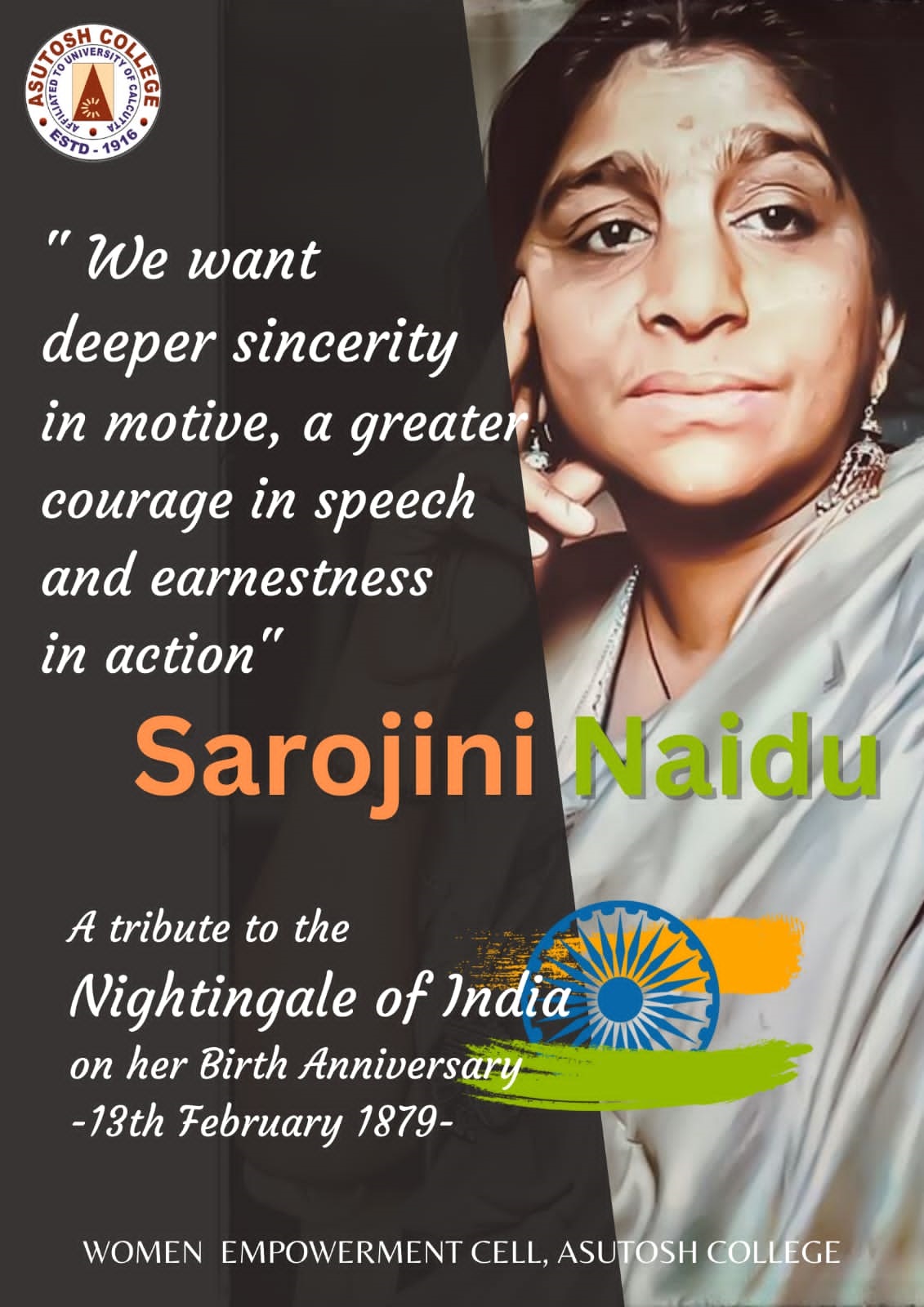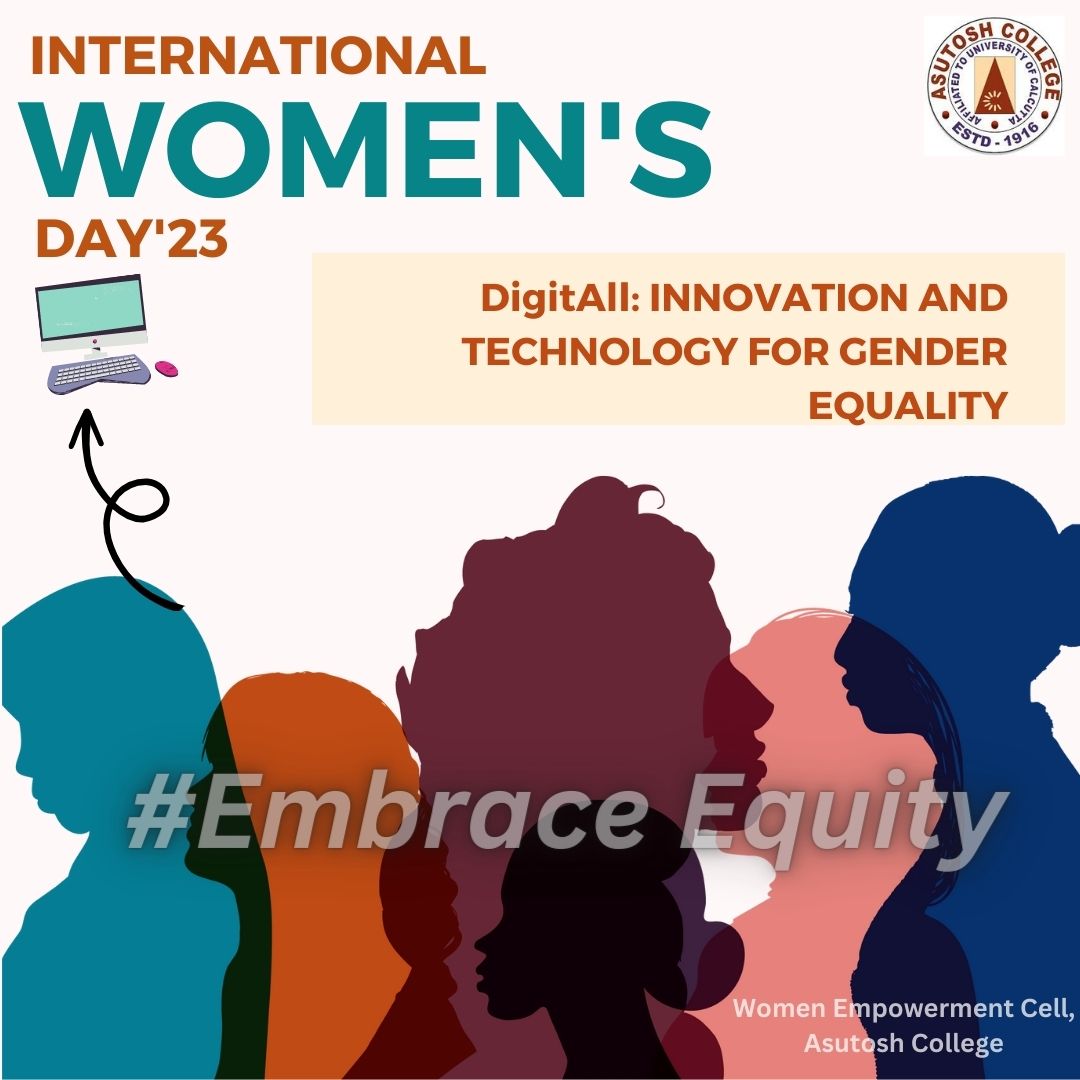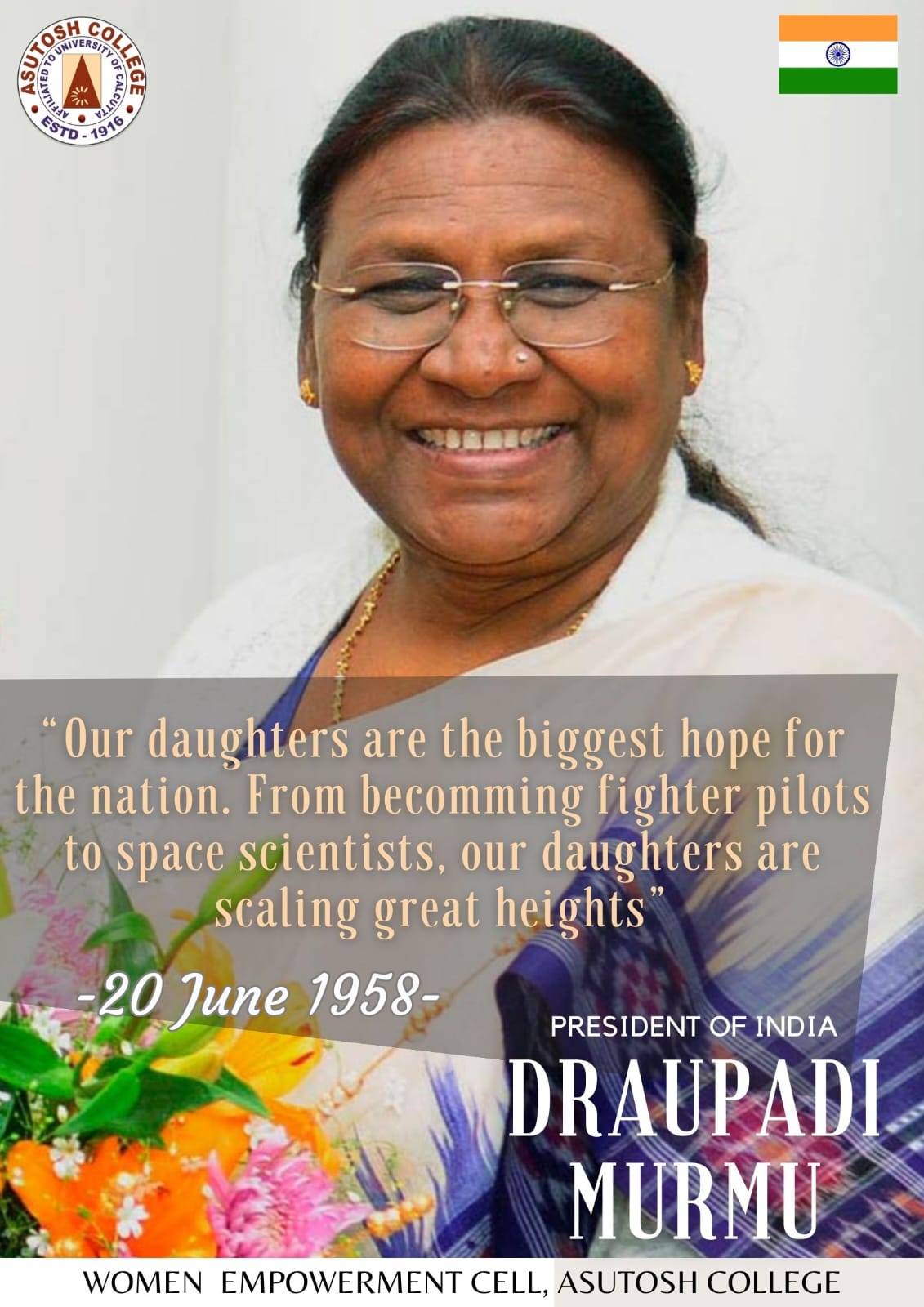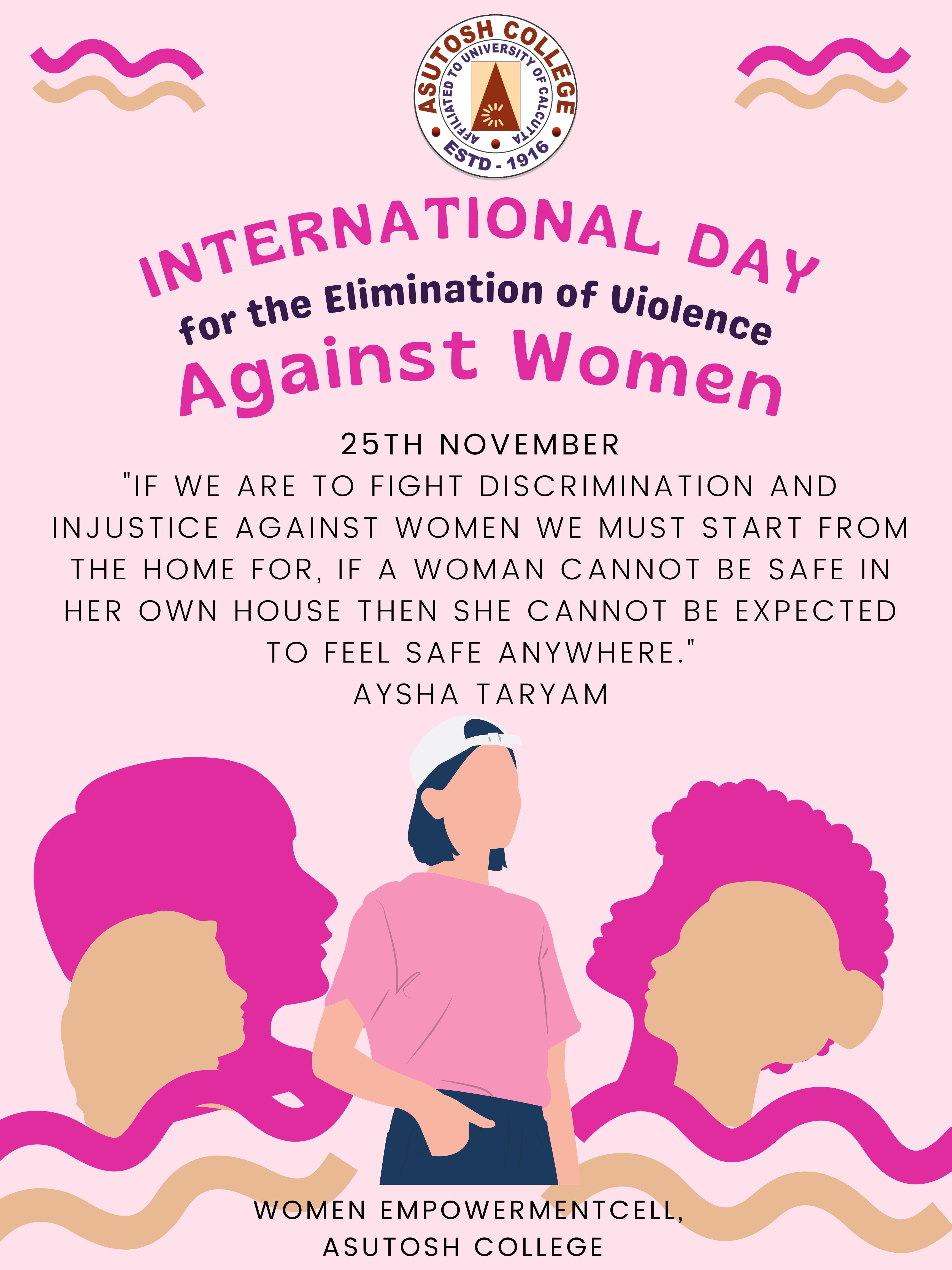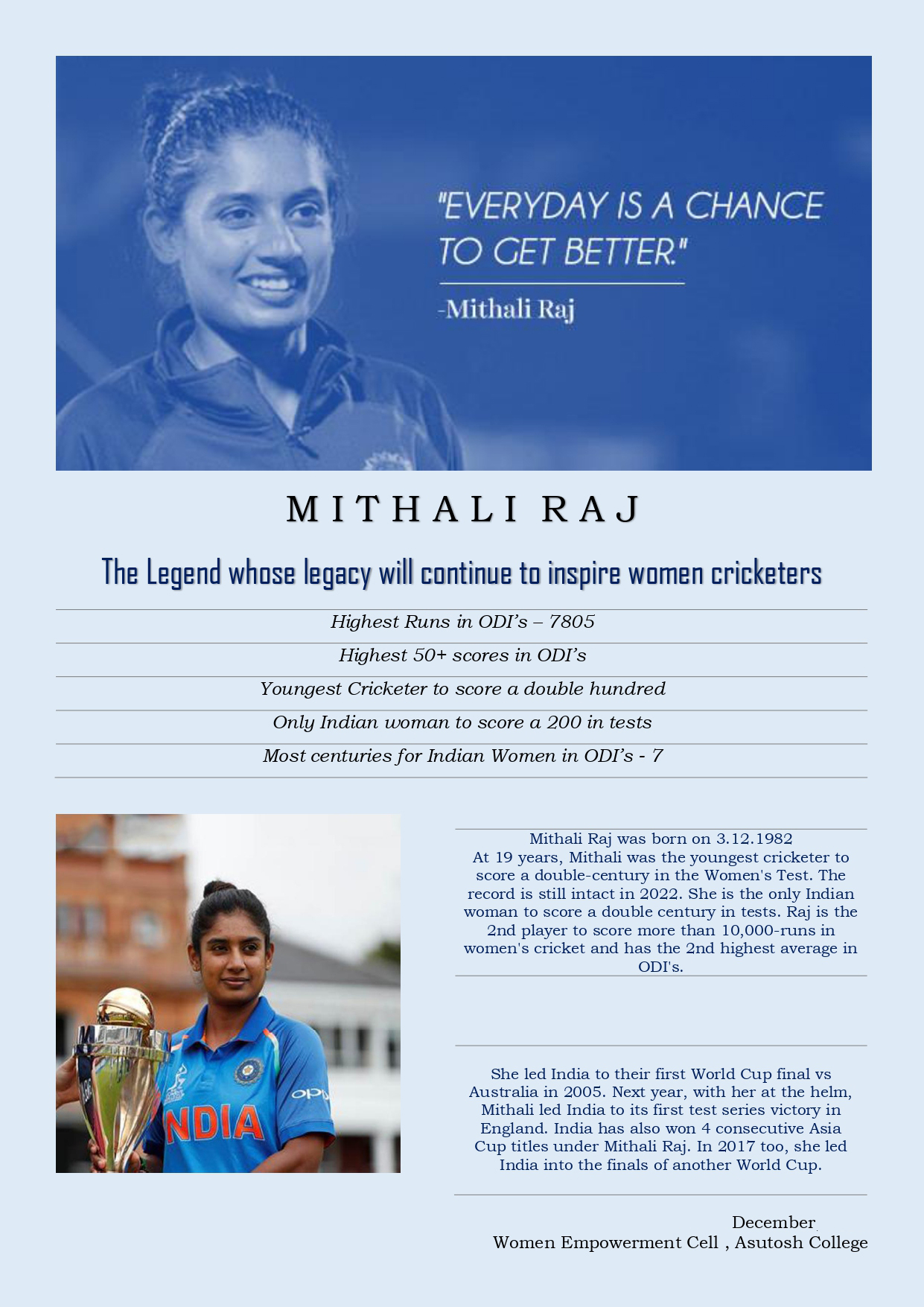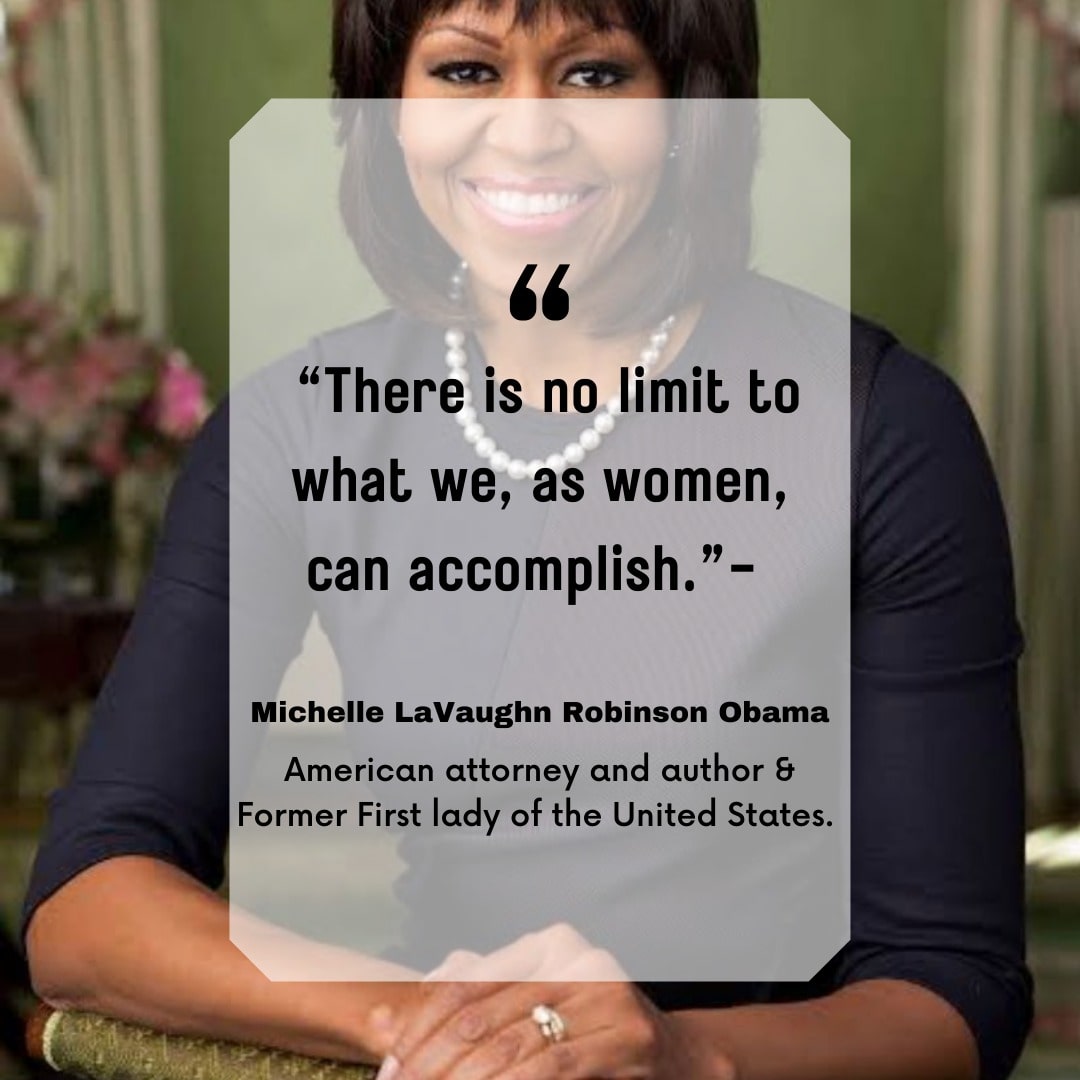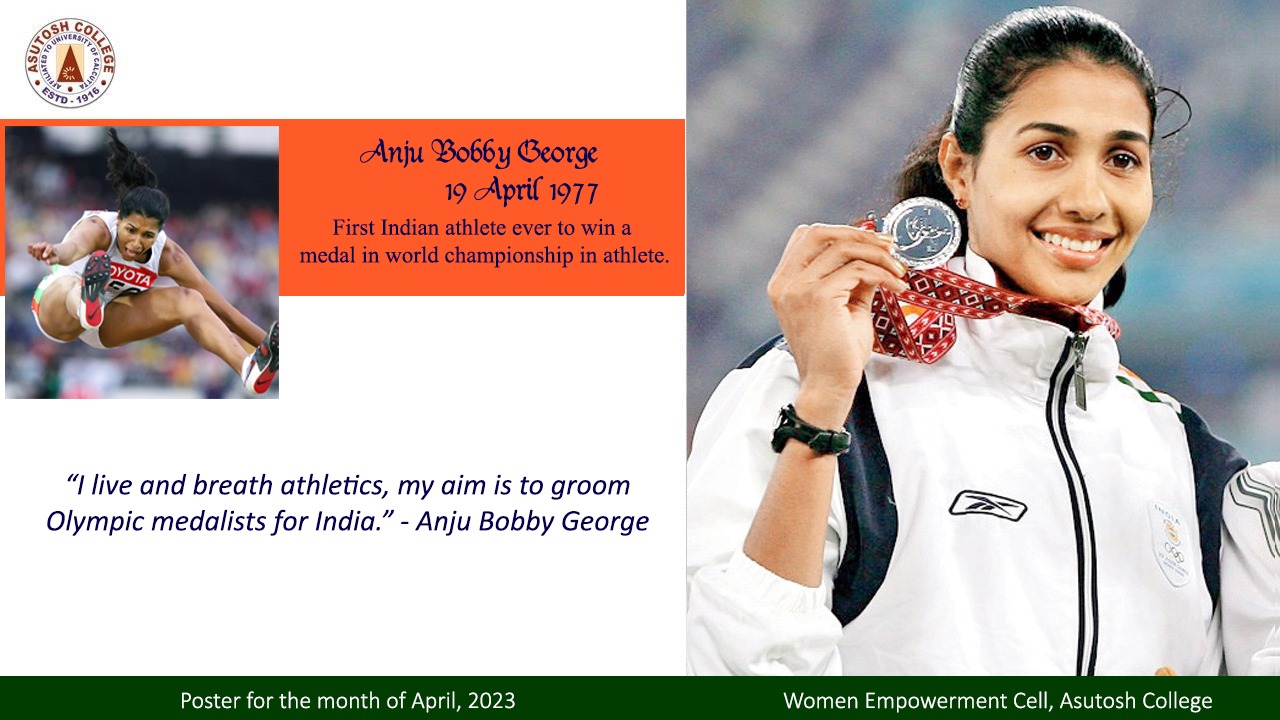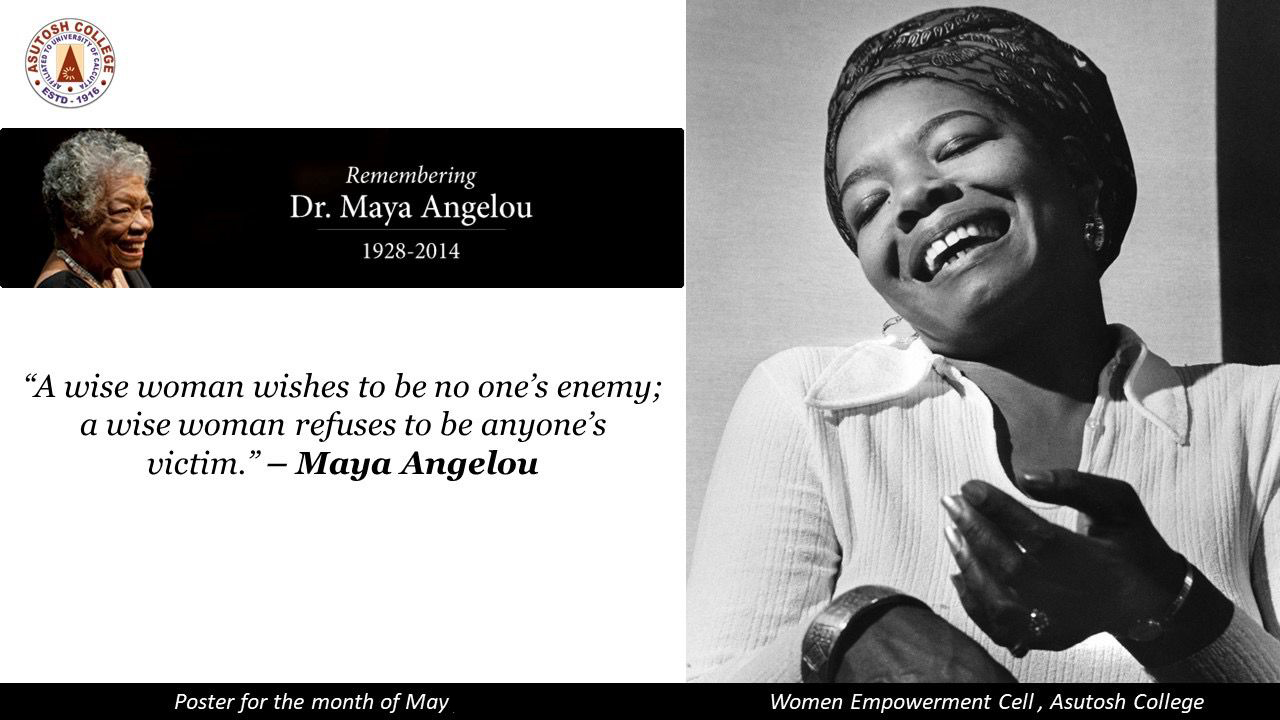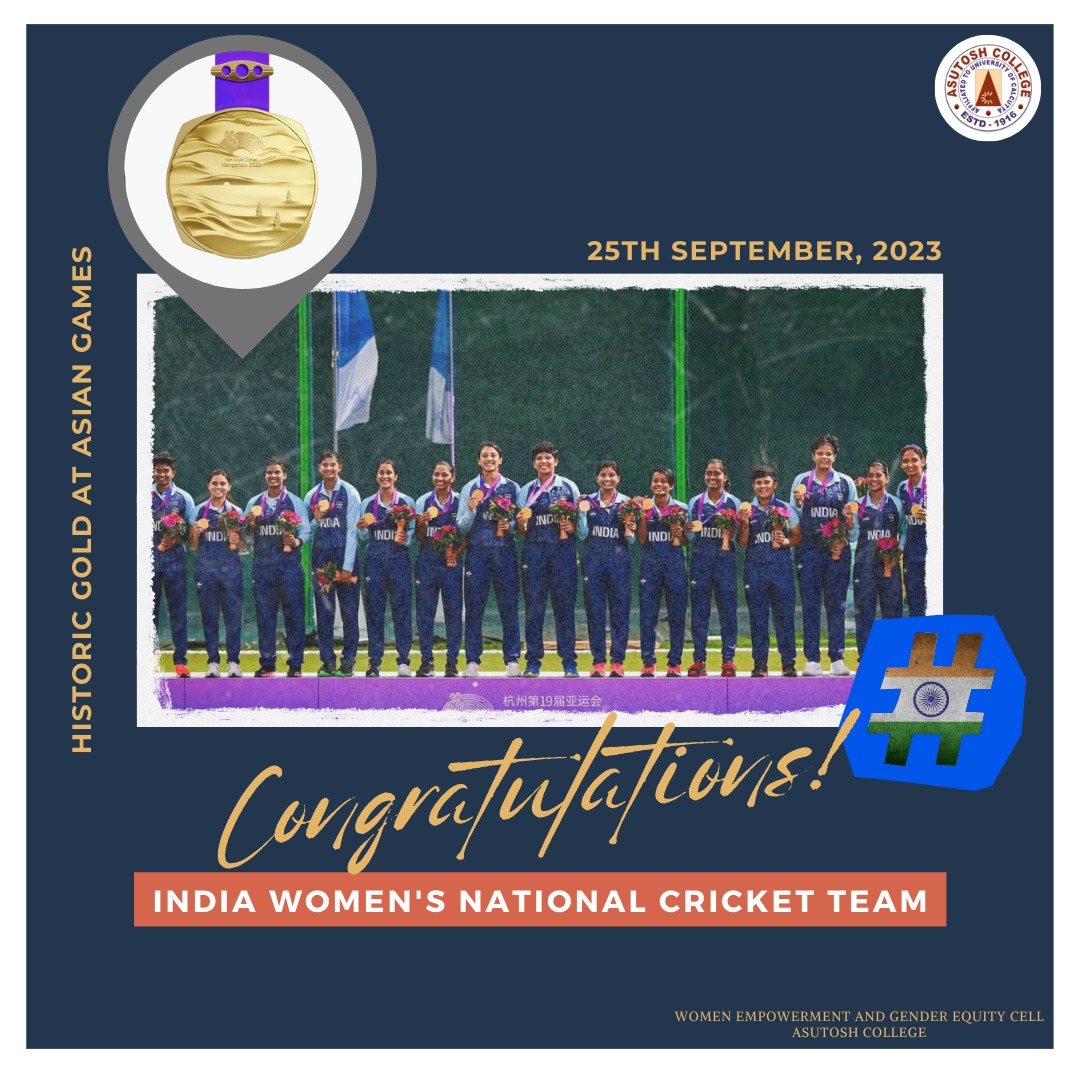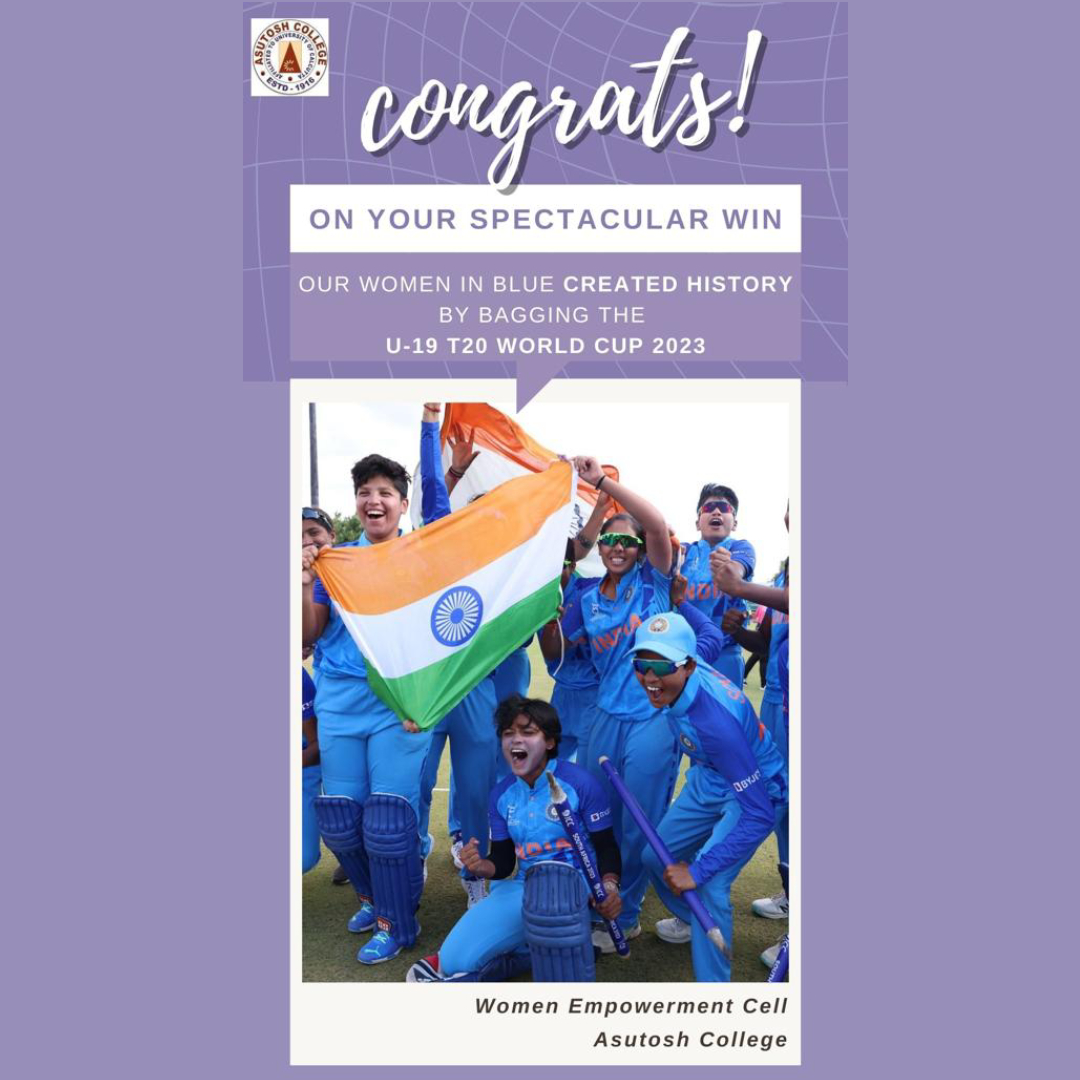Thought of the Month

Activities
GENDER AUDIT Report
- GENDER AUDIT 2023-2024 : Download
- GENDER AUDIT 2022-2023 : Download
- GENDER AUDIT 2021-2022 : Download
Other Report
- Report on Empowering Women Through Karate on 29 November,2024 : Download
- Report on one day seminar on VIOLENCE AGAINST WOMEN SOCIOLOGICAL AND PSYCHOLOGICAL PERSPECTIVES : Download
- Report on Nari kothay Sahityo o Somaj : Download
- Report on Interactive Panel Discussion Dynamics of Interpersonal Relationships Across Institutions Past and Present : Download
- ACTION PLAN WOMEN EMPOWERMENT CELL-23 : Download
- Report of Workshop on Gender Sensitization, 27th September, 2023 : Download
- Report of International Women's Day, 8th March, 2023 : Download Flyer
- Asutosh College Celebrates International Women's Day, 8th March, 2023 :View
- Flyer for 250th birth anniversary- extension lecture on Raja Rammohan Roy : Women Empowerment Cell, Asutosh College :View
- YouTube Link for A documentary film on Rabi Chetanay Dosh Naari - Women Empowerment Cell, Asutosh College :View
- YouTube Link for Ecofeminism - Women Empowerment Cell, Asutosh College :View
- YouTube Link for Women Empowerment Cell Celebrates International Women's Day 2022 :View
Contact Email-Id : womenempowerment.cell@asutoshcollege.in
Yes, it is bread we fight for-but we fight for roses too!As we come marching, marching, we bring the greater days.
The rising of the woman means the rising of the race
No more the drudge and the idler-ten that toil where one reposes,
But a sharing of life’s glories: Bread and Roses! Bread and Roses!
- ‘Bread and Roses’ by James Oppenheim
On 8th March, 1908, thousands of female textile workers demonstrated in the streets of New York city, carrying pieces of dry bread and bouquets of roses- a symbolic step, as they chose for their protest movement, the slogan ‘Bread and Roses’- in their demand for equal wages for men and women, abolition of child labour, fixing of working hours and giving women the right to vote. They were attacked by the police and eventually dispersed. Years later in December 1977, the United Nations officially commemorated 8th March as International Women’s Day as a symbol of women’s struggle in which women all over the world went out in demonstrations to demand their rights. Therefore, on International Women’s Day we recognise and celebrate the historical, social, economic, cultural and political achievements of women and raise awareness of the issues impacting women all over the world. However, today, Women’s Day is marked by capitalist narratives with their bogus claims of ‘women empowerment’ when in reality they strip feminism of all its essences and reduce women to an identity that needs to be celebrated within and through the logic of buying and selling. The flash sale that clothing and cosmetics brand stage around Women’s Day every year, advertisements and campaigns such as Kalyan Jewellers’ #IamMoreThanEnough, Biba’s #ManyShadesOneMe that claim to celebrate the identity of women and McDonald’s promotional stunt of flipping its ‘M’ icon into a ‘W’ on Women’s Day testify to how brands and companies continue to appropriate Women’s Day and its significance for their own profits. Therefore, to counter such institutional and corporate appropriation, Women’s Day should be understood historically and politically and not reduced to a ritual emptied of meaning, where the history of struggle and that of protest is eventually erased.
Women have come a long way as we say our lives are better because of the gains won in the past but we have further to go as we still grapple with old and new challenges. In many places around the world and many parts of India, the rights of women are still attacked, women’s voices muffled and eventually silenced. Lack of basic human rights and economic security, lack of education, female foeticide, female infanticide, honour killing, rape, domestic violence, child marriage, dowry harassment, are some of the harsh realities for women in regressive societies. While in the more progressive ones, women still face issues of gender discrimination, work place misogyny and objectification.
The theme of this year’s International Women’s Day is ‘DigitALL: Innovation and Technology for Gender Equality’. The theme focuses on a gender-equal world that is free from bias, stereotypes and discrimination- a world that is diverse, equitable and inclusive- a society where difference is valued and celebrated. This gender-equal world can only be realised if one understands that women/girls are essential to success and progress in every aspect of our society and that no great global challenge of our time can be solved if half of the population is left behind.
